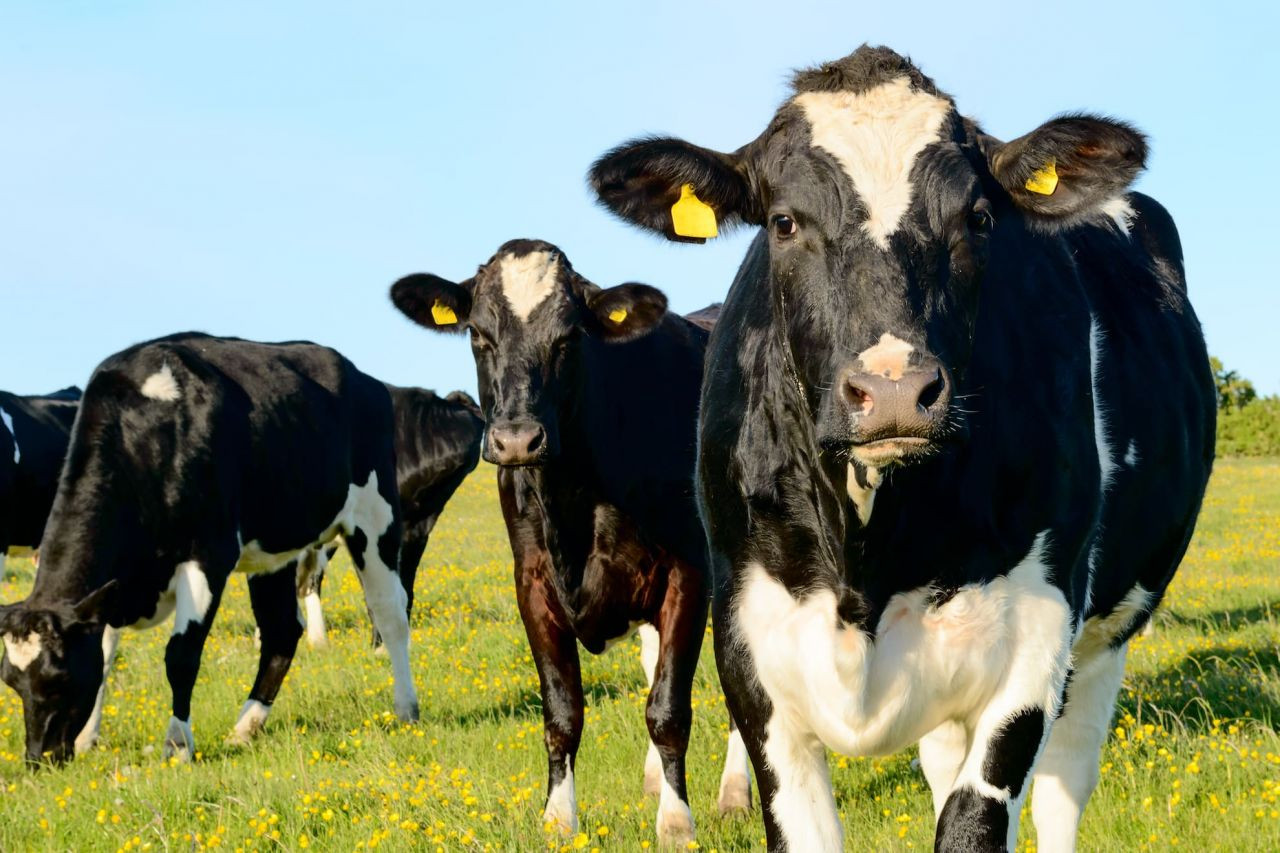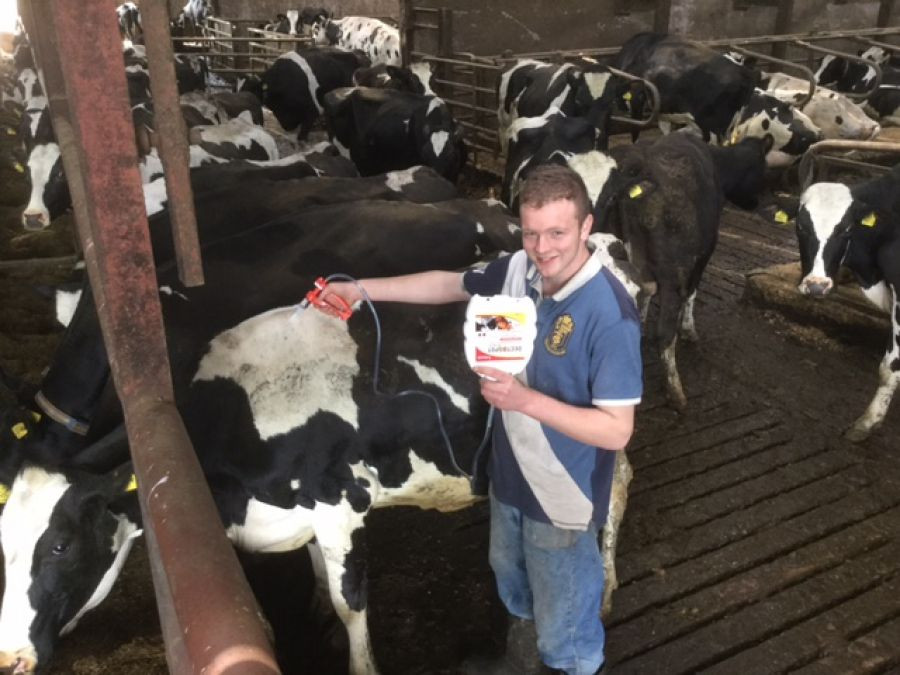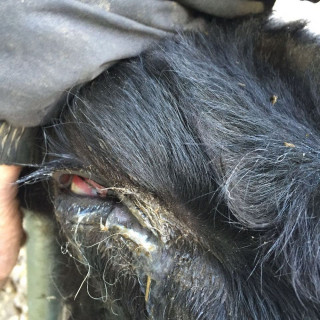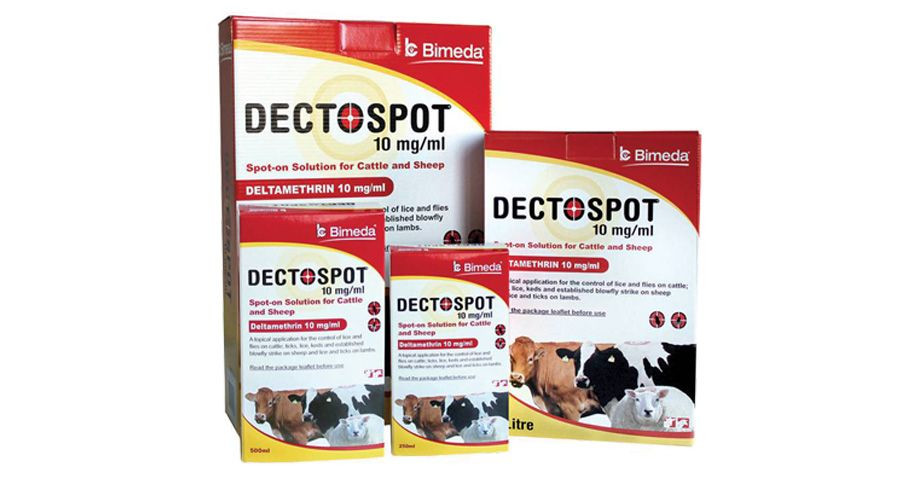Summer Flies- It’s Time To Take Control
With warmer days and longer evenings announcing the arrival of summer and good silage weather, most stock owners do not need reminding of the problems that they may face from now until well into the autumn, with the arrival of summer flies.
Whether your main enterprise is dairy, beef or sheep, flies are more than just a nuisance to your livestock and are often the vectors for disease that can result in reduced productivity and profitability, as well as animal welfare issues.
This means that fly control over summer is vital. By reducing flies' contact with livestock, we can better control key diseases such as Summer Mastitis, Pink Eye and Blowfly Strike. These common fly-borne diseases will reduce animal productivity and your profit margin, so it's vital that we take a proactive approach to prevention. The good news is that we can introduce simple protocols to reduce the impact of summer flies- let's take a look at how you can take back control.
Summer Mastitis in particular is a disease which causes huge stress and expense for Irish farmers. Painful and debilitating, summer mastitis is a fly-borne disease resulting in the infection of the non-lactating mammary gland which affects dry cows, young calves and heifers.
Where animals are affected by summer mastitis, veterinary intervention will be required as antibiotics and anti-inflammatories will be needed. However, prevention is always better than cure as, in reality; most affected quarters will not recover.
Taking Control
Now is the time to act to reduce the risk on your farm. Many farmers use teat sealants and antibiotics to prevent summer mastitis. Fly control is also vital to prevent the disease from spreading from cow to cow. Fly control ear tags, insecticides, pour-ons and weekly application of stockholm tar can all play a role in fly control.
In most cases, successful prevention of fly-borne diseases is very reliant on the repelling the adult fly. Pour-ons such as new Dectospot (Deltamethrin 10mg/ml) from Bimeda are an effective tool in the control of fly-borne diseases. Dectospot also provides flexibility to farmers; as it has zero milk withdrawal in cattle and can be used during both pregnancy and lactation.
For Pink Eye, flies are the biggest risk factor for the irritation to the eye necessary for the disease, and for spreading the disease from one animal to another. Aside from the obvious animal welfare implications resulting from the inflammation and ulceration of the eye, Pink Eye is of major economic significance through:
- Decreased weight gain,
- Decreased milk production,
- Treatment costs.
As with summer mastitis, prevention of Pink Eye is vastly preferable to treatment, which will require veterinary intervention.
Management practices that reduce the risk factors associated with Pink Eye are the most effective tools in decreasing the incidence of disease. With a lower incidence of disease, the overall concentration of bacteria on the farm will be lowered, reducing the risk of a severe pinkeye outbreak.
Appropriate grazing, along with topping pastures will also help. This will prevent seed-head development; reducing the irritation to the eyes of cattle, as well as reducing the resting areas for the flies. Topping pastures to a low stubble height in May, just after the seed heads emerge, and again in mid-summer when weeds appear is recommended. Shaded areas need to be available to decrease the UV exposure. A good management programme, including an appropriate vaccination program (especially IBR and BVD), good quality nutrition, and minerals available at all times will improve the overall condition of the cattle and decrease the incidence of this disease. Animals that develop Pink Eye should be isolated if possible.
Repelling the adult fly is vital to any successful disease prevention strategy and Deltamethrin Pour-ons such as Dectospot can play a valuable role in your control strategy. For further convenience, Dectospot is available in 4 pack sizes; 250ml, 500ml, 1 litre and 2.5 litres. Visit dectospot product details to find out more.
For more best practice advice, speak to your animal health advisor or vet. While the threat of flies can be a headache for Irish farmers, by acting now to implement some key fly control protocols, you will be able to reduce the financial and disease impact of fly-borne diseases, to the benefit of your profitability and your animals' welfare. Such protocols should be seen as an investment, rather than a cost, and their implementation will save you both time and money in the long term.



